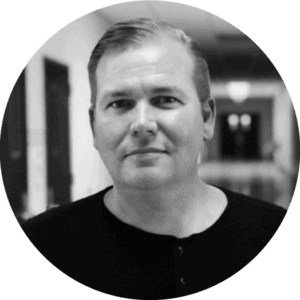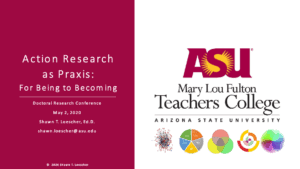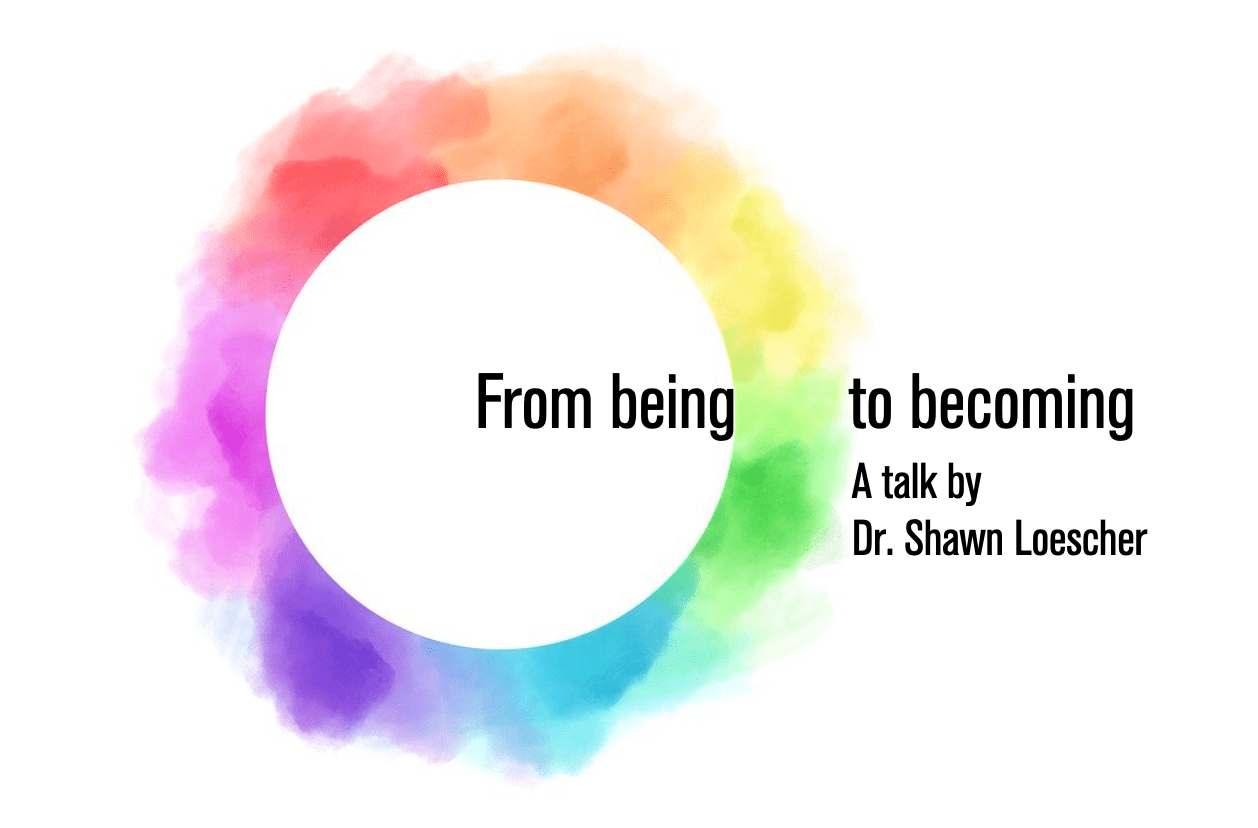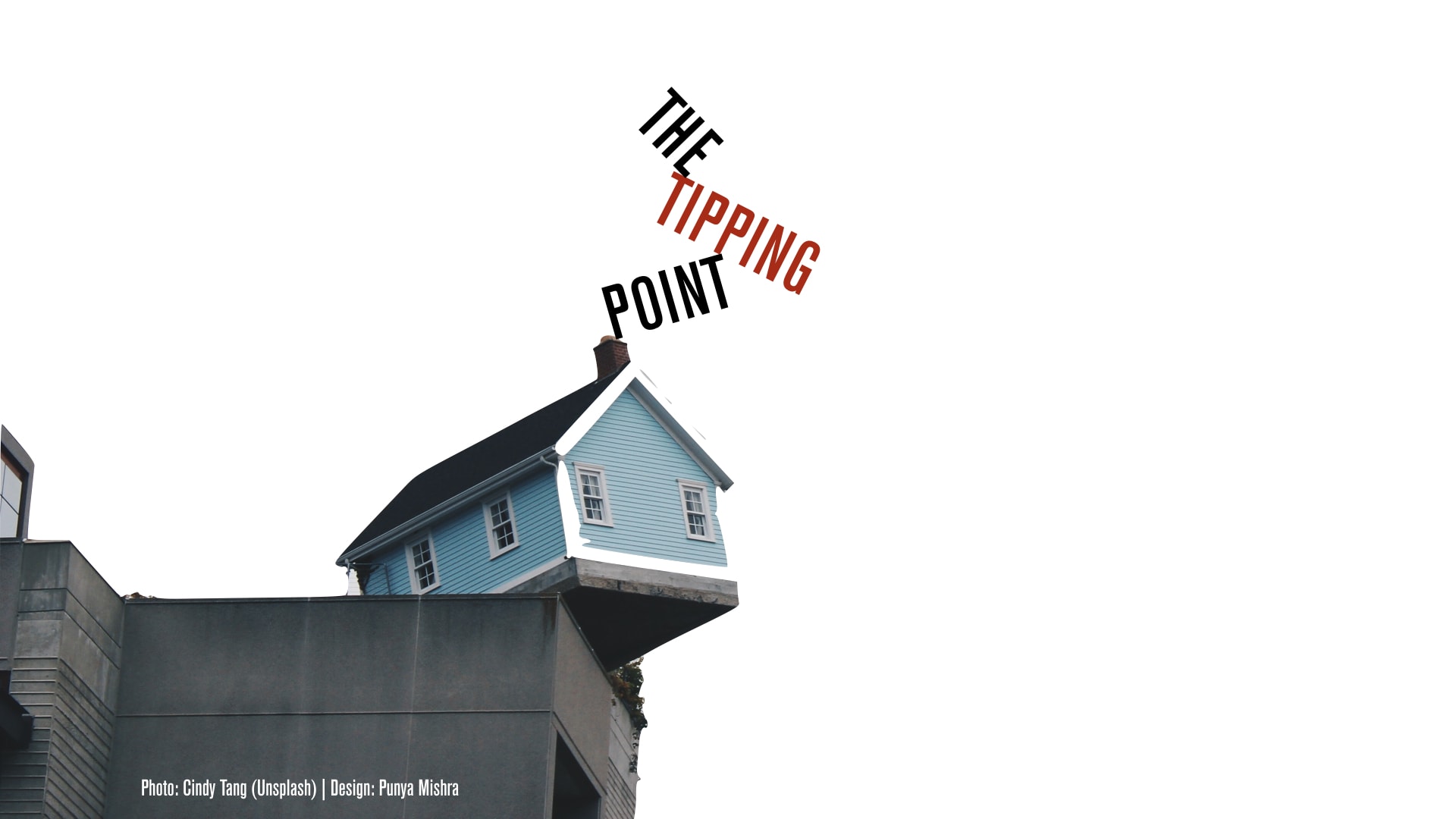It is rarely that I hear a talk that blows me away.
We have all seen the TED talks, and their mutant offspring. The over-hyped music and catchy taglines; the speaker in front of a rapt audience; the crafted delivery with its carefully punctuated pauses and reveals, the self-deprecatory humor and, of course, the final insight or wisdom packaged in 30 words or less.
But it is rare to hear a talk that is measured and thoughtful and, most important, thought provoking. A talk that manages to be deeply philosophical and academic and yet connect, as deeply, to questions and issues of practice. A talk that is measured and relaxed yet powerful.
I recently had the good fortune of hearing my friend Dr. Shawn Loescher give the keynote at the Doctoral Research Conference at the Mary Lou Fulton Teachers College. And it is my pleasure to share it with the world.
In his talk Shawn touches on many things, action research and design, the relationship of research and practice, the role of design in the futures of learning, and the importance of principled innovation (all ideas dear to my heart). [For more on our work on designing Learning Futures and Principled Innovation see these this and this].
To start, here is an introduction to the conference and Shawn’s keynote written by my friend and colleague Dr. Danah Henriksen. (Thank you Danah)
•
Introduction the Doctoral Research Conference and Dr. Loescher’s talk
By Dr. Danah Henriksen
The EdD program in Leadership and Innovation has been a flagship program in the Mary Lou Fulton Teachers College for nearly 15 years. It began as a traditional face-to-face program, helping educators and educational leaders in Arizona who had dreamed of finding a better way to improve their collective practice and engage leadership and inquiry.
In 2015, a fully online version of the program was launched to great success and interest. In order to ensure that all students, both online and face-to-face, had the same opportunity for sharing of their research in a professional conference setting, the program committee decided to transition our bi-yearly Doctoral Research Conference into a fully online format. In this new online conference format, students from different cohorts, and geographic locations, come together one a year, in a one-day professional research conference. In sharing their action research efforts here, doctoral students connect across the program and the world with other students in the same program, who are working in a range of (sometimes very similar or drastically different) research problems and settings. This day-long event is an exciting celebration of the incredible work our students are engaged in.
The highlight of the day, each year, is the Keynote speaker. As a program, we seek out a Keynote speaker who can speak both to the challenges and rigors of research, as well as the complexity and messiness of practice. We hope the speaker can bring together ideas and concepts around innovation, action research and the intersection of research and practice, all within the context of current and emerging issues in education. This year, in 2020 we were honored to invite a recent and acclaimed graduate of the program—Dr. Shawn Loescher—to deliver the Keynote.

This is how I introduced him:
Dr. Shawn T. Loescher, Ed.D., is an active practitioner with over 25 years of experience, both domestically and abroad, in educational innovation and school system redesign. He currently serves as a Chief Executive Officer of an inner-city school system in San Diego, CA. In 2019, Dr. Loescher was named one of 16 worldwide recipients of the TED-Ed Innovative Educators award. He earned his doctorate from this EdD program, right here here in the Mary Lou Fulton Teachers College at ASU with a focus on leadership, innovation, theory, and policy. Dr. Loescher is an American Educational Research Association awarded scholarly practitioner in action research and sciences, where he won the AERA Action Research SIG Dissertation of the Year Award for 2020. He’s a sought-after keynote and TED talk speaker, guest lecturer, consultant, and think tank participant.

•
Action research as praxis: From being to becoming
Abstract: In the English language, there are two common understandings of the word Ontology, that of being and becoming. Action research is guided by understandings of the past, is grounded in the present, and is solutions orientated towards a more ideal future state. Guided by the literature and contextual knowledge, an action researcher may simultaneously be a disrupter of the status quo, an instrument of data collection, and the navigator of a political environment. This keynote address focuses on action research as a means of systemic improvement for the Friearian notion of praxis towards our first vocation, that of becoming more human. Dr. Loescher will discuss how action research is being used as a means of emancipatory practice in the service of our students and communities.
You can find the video below (and the slides here)
•
More about Dr. Loescher
- Personal Website: http://www.shawnloescher.com
- ResearchGate Site: https://www.researchgate.net/profile/Shawn_Loescher
- LinkedIn Profile: https://www.linkedin.com/in/shawn-t-loescher-ed-d-8684a42/
- Twitter: https://twitter.com/shawnloescher
- Facebook: https://www.facebook.com/sloescher.edd
- urbansd.com
- id8high.com
- dtecsd.com
- designlab.ucsd.edu



0 Comments